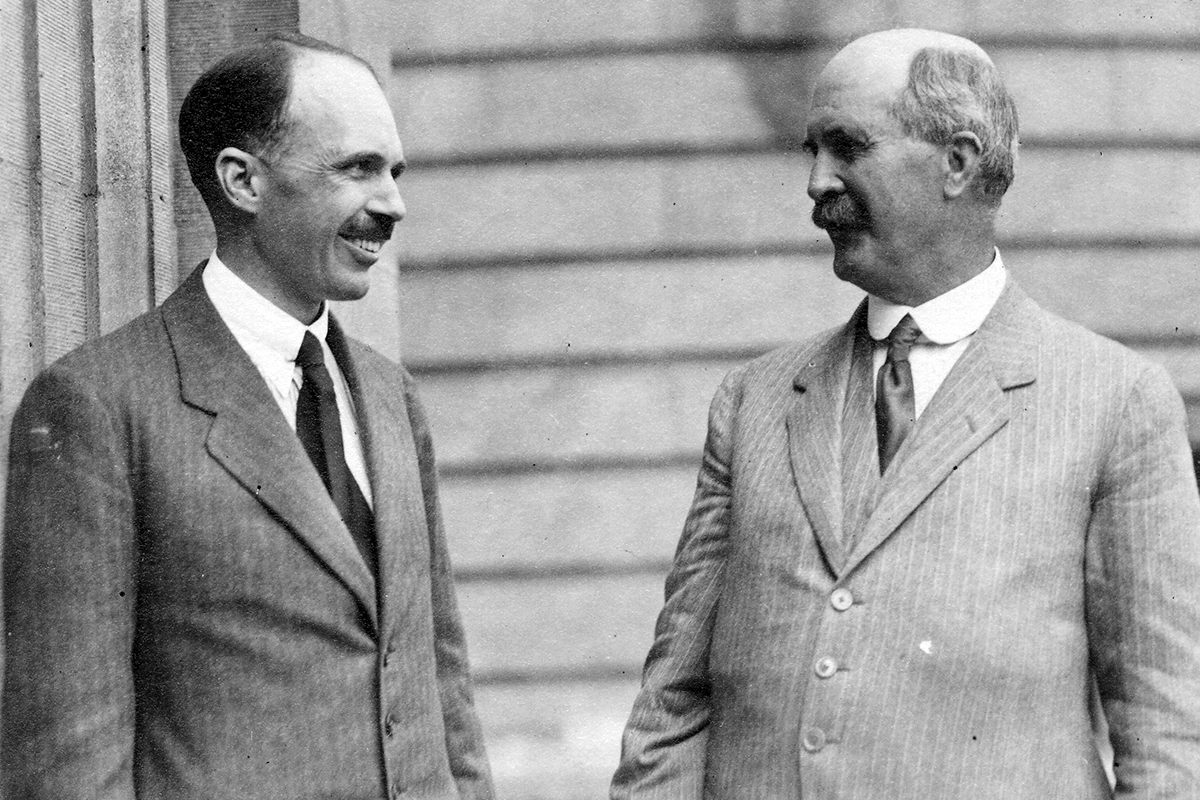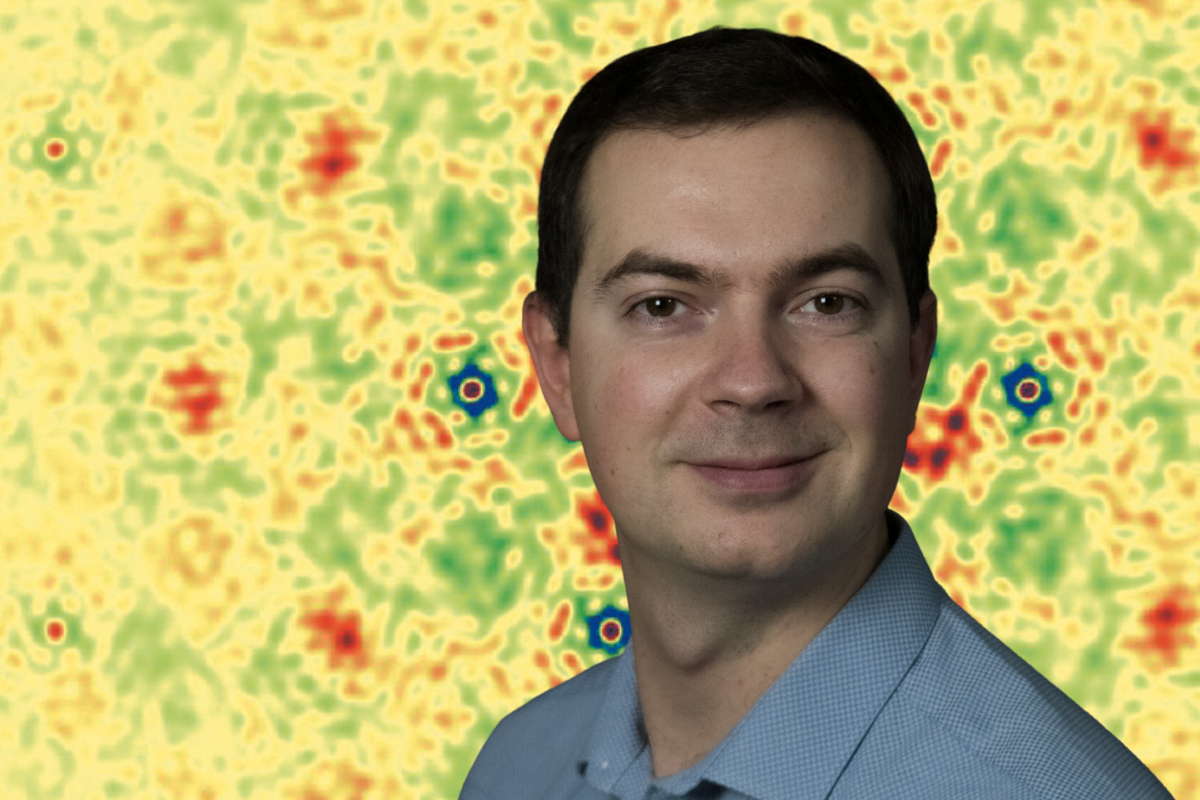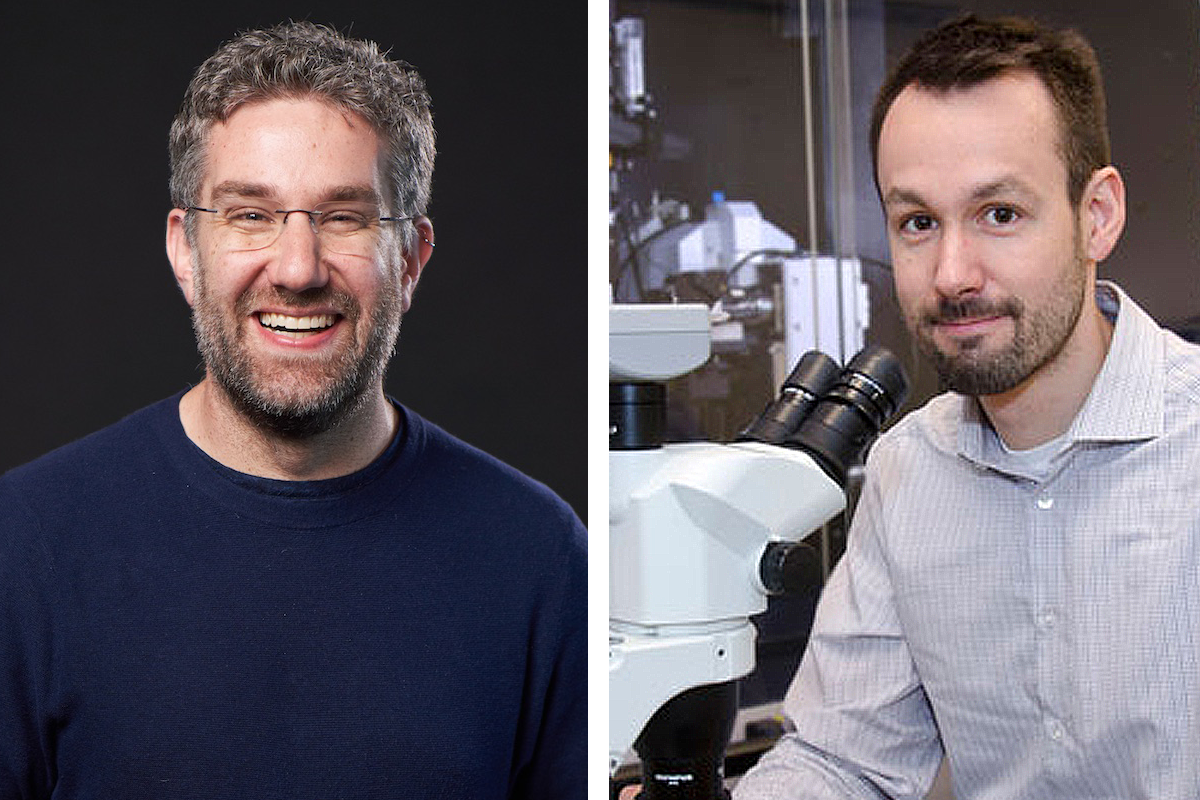W. H. & W. L. Bragg Prize

William Lawrence Bragg (left) and William Henry Bragg. Credit: Smithsonian Institution Archives. Image # SIA2007-0340.
In 2017 the IUCr established the W. H. & W. L. Bragg Prize to be awarded to up to two promising early-career crystallographers. The Prize will be awarded at IUCr Congresses. The awardee(s) will receive a certificate and a financial reward, and will be invited to make a presentation at the Congress on a topic related to the prize citation. The third Bragg Prize will be presented at the Calgary Congress in August 2026.
Research achievement relative to opportunity will define the eligibility of candidates for this award. For this purpose an “early-career researcher” is defined as one who received their PhD no more than 10 years before the closing date for nominations. Academic interruptions, including periods of parental leave, are taken into account.
To support the IUCr by contributing to the funding of the W. H. & W. L. Bragg Prize, please donate using the button below.

Second W. H. and W. L. Bragg Prize awarded to Arkadiy Simonov
The 2023 W. H. and W. L. Bragg Prize for outstanding early-career crystallographers has been awarded to Arkadiy Simonov (ETH Zürich, Switzerland) for his development of the three-dimensional difference pair distribution function (3D-∆PDF) approach and its transformative effect on the field of materials.
Over the past decade, Arkadiy has established himself as the single most talented young researcher in the interpretation of diffuse scattering from single crystals. Not only is he the author of the foremost codes for data reduction (MEERKAT) and 3D-∆PDF refinement (YELL) but also he is applying his 3D-∆PDF methods to solve crucially important problems in materials science.
Professor Simonov started his academic career under the tutelage of Dr Thomas Weber and Professor Walter Steurer at ETH Zürich. The YELL code was a key outcome of his Doctorate; this software enabled the fitting of the 3D-∆PDF in terms of pairwise correlation parameters. In this way, Arkadiy established the first general approach for refinement of the diffuse scattering contribution to single-crystal diffraction patterns. He applied his methodology to a range of systems, and in doing so both established a series of proofs-of-concept and solved a number of important outstanding problems in the field of complex materials.
Professor Simonov will present a Keynote Lecture during the 26th IUCr Congress in Melbourne, Australia, in August 2023.
For a list of papers by Arkadiy Simonov appearing in IUCr journals click here.

Inaugural W. H. and W. L. Bragg Prize awarded to James Fraser and Jean-Philippe Julien
The 2020 W. H. and W. L. Bragg Prize for outstanding early-career crystallographers has been jointly awarded to James Fraser (left; Associate Professor in the Department of Bioengineering and Therapeutic Sciences at the University of California San Francisco, USA) and Jean-Philippe Julien [Senior Scientist at the Hospital for Sick Children (SickKids) and Associate Professor in the Departments of Biochemistry and Immunology at the University of Toronto, Canada] as a recognition of their scholarly achievements as well as their strong commitment to serve the crystallographic community.
Dr Julien’s research activities have been focused on the determination of crystal structures of macromolecules of high medical relevance. His studies have made a huge impact on biological and medical sciences. In particular, he determined the first crystal structure of an intact HIV envelope trimer by X-ray crystallography as well as by cryo-EM. The insights gathered from this structure and the construct engineering now serve as the template in the worldwide community for HIV structure-based drug and vaccine design in the quest to curtail the HIV epidemic. Dr Julien has also determined the EM structure of a quaternary preferring antibody (PG9) in complex with the soluble SOSIP Env trimer. This work provided the first structural evidence that epitopes of broadly neutralizing antibodies are much more complex than thought. In this sense the corresponding publication in PNAS must be considered a paradigm-shifting publication. At present, Dr Julien’s independent research programme is focused on two major areas: (a) structure-based immunogen design for the development of an anti-malarial vaccine, and (b) structural delineation of B-cell receptors. With respect to the latter, he embarked on a completely new direction of structural investigation of B-cell co-receptors, on nanoparticles engineered to target these receptors, and on characterising antibody responses to malaria antigens to aid in vaccine design.
Dr Fraser’s research activities have been and are focused on studying the flexibility and conformational variability in macromolecules through experimental and computational methods. His research has provided new insights into how we can understand the role of protein flexibility in function through the use of crystallographic data. He has made seminal contributions to advancing the analysis of diffraction data in new directions, including the analysis of room-temperature and temperature-dependent data to gain insights into protein dynamics, studies of diffuse scattering from proteins, and the development of new experiments to exploit X-ray free-electron lasers in this field. The two main developments, room-temperature X-ray data collection and structural ensemble modeling into weak electron density, contributed synergistically to help reveal the structural basis of protein dynamics, moving away from static representations towards more realistic descriptions of how proteins populate conformational space. Dr Fraser’s innovative approaches contributed to translating fundamental discoveries in protein dynamics into improvement of protein engineering and drug design.
Drs Fraser and Julien shared the presentation of a Keynote Lecture during the 25th IUCr Congress in Prague, Czech Republic, in August 2021.
The IUCr was pleased to be able to conduct (socially distanced) interviews with the recipients about their life and work.
Read the full interview with James Fraser here.
Read the full interview with Jean-Philippe Julien here.
For a list of papers by James Fraser appearing in IUCr journals click here.
For a list of papers by Jean-Philippe Julien appearing in IUCr journals click here.

